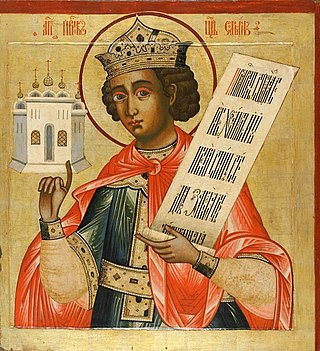David Harris may refer to:
Michael Smith or Mike Smith may refer to:
Mickey is a given name and nickname, almost always masculine and often a short form (hypocorism) of Michael, and occasionally a surname. Notable people and characters with the name include:
Charles or Charlie Davis may refer to:
Flynn is an Irish surname or first name, an anglicised form of the Irish Ó Floinn or possibly Mac Floinn, meaning "descendant or son of Flann". The name is more commonly used as a surname rather than a first name.
Noonan is an Irish surname.
Jensen is a Danish and Norwegian patronymic surname derived from the given name Jens
O'Malley is an Irish surname. According to historian C. Thomas Cairney, the O'Malleys were the chiefly family of the Partraige who were a tribe of the Erainn, the second wave of Celts to settle in Ireland between about 500 and 100 BC.
Buchanan is a surname of Scottish origin. People with this surname include:
Craig is a surname, derived from the Scottish Gaelic creag. The word craig refers to a small, rocky hill in Scottish English.
Donovan is a surname and given name of Irish origin. The O'Donovan family takes its name from Donnubán mac Cathail.
Peterson/Petersen is a Scandinavian patronymic surname meaning "son of Peter." The given name Peter is derived from the Greek πέτρος (petros), meaning "rock" or "stone," and has been a popular name choice throughout history for the Christian apostle Peter. The surname is most commonly found in European countries such as Sweden, Denmark, Germany, Holland, and Brussels in the northwestern region. There are an estimated 700 variant spellings of the surname. The form Peterson may also have arisen from Danish Pedersen or Petersen with a change of spelling commonly applied by Danish immigrants to English-speaking countries. On another note, the surname Peterson is native to Sweden; therefore, Peterson is the correct spelling from that country.

Burke is a Norman-Irish surname, deriving from the ancient Anglo-Norman and Hiberno-Norman noble dynasty, the House of Burgh. In Ireland, the descendants of William de Burgh had the surname de Burgh, which was gaelicised in Irish as de Búrca and over the centuries became Búrc, then Burke, and Bourke.
Peters is a patronymic surname of Low German, Dutch, and English origin. It can also be an English translation of Gaelic Mac Pheadair or an Americanized form of cognate surnames like Peeters or Pieters.

Solomon is a masculine given name and surname of Hebrew origin, popularized by the biblical figure Solomon, Israelite monarch and son of David. The name is derived from the Latin Solomōn, borrowed from the Ancient Greek Solomṓn (Σολομών), ultimately from the Hebrew Šĕlōmō (שְׁלֹמֹה). It is derived from the Semitic root Š-L-M (ש-ל-ם), which translates to "whole, complete" which is also the basis of the word Shalom.
Littleton is both a surname and a masculine given name. Notable people with the name include:
Doug is a male personal name. It is sometimes a given name, but more often it is a hypocorism which takes the place of a given name, usually Douglas. Notable people with the name include:
Proctor is an English occupational surname, originally meaning 'steward', derived from Latin procurare.
This page is based on this
Wikipedia article Text is available under the
CC BY-SA 4.0 license; additional terms may apply.
Images, videos and audio are available under their respective licenses.
